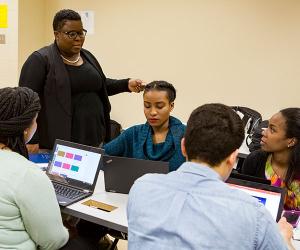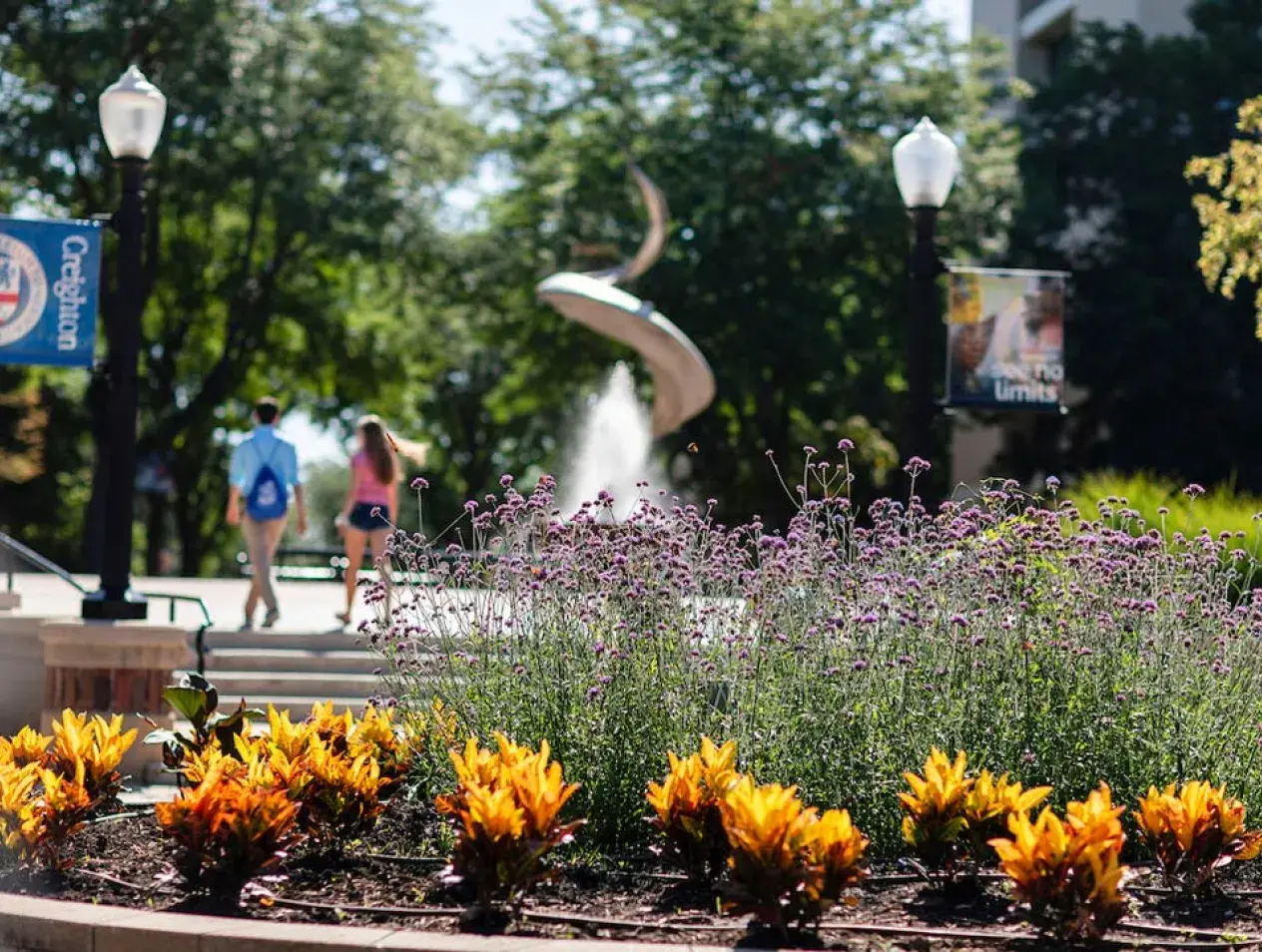Creighton’s Omaha Campus is closed Friday, Feb. 20, due to winter weather. All on-campus events, in-person classes, and clinics are canceled. All other classes and events will take place as normal.

Mentoring & Tutoring
Providing the support you need for success.
The Health Sciences Multicultural and Community Affairs Office recruits and works to retain underrepresented and educationally and environmentally disadvantaged students to Creighton University’s health sciences schools. The mission is to develop a multicultural healthcare workforce, which will help reduce harmful health disparities in underserved and diverse communities. The office provides academic, financial and social support services to targeted students and administers special programs designed to increase minority participation in the health sciences.

The Health Sciences Multicultural and Community Affairs Office offers tutoring for students who need extra assistance in pipeline programs or any of the health sciences schools. Students may be referred by coordinators for tutoring in subject areas of biology, chemistry, physics, math or any of the health professions subjects.
Services may include:
- Individual meetings with instructor for additional assistance
- Individual and peer tutoring sessions with classmates
- Access to academic resources offered through the University and/or
- Assignment of an individual tutor
A strong sense of community at Creighton University motivates individuals and groups to lend assistance to students who benefit from tutoring. Examples of tutoring combinations have included:
- Medical students providing one-on-one and group tutoring to Saturday Academy pipeline program students
- The Middle School Program coordinator tutoring students each week at the Boys and Girls Club of the Midlands
- Medical students trained through a National Institutes of Health program to reduce health disparities tutoring students
- Organizations including Student National Dental Association (SNDA), Student National Medical Association-Minority Association of Pre-Health Students (MAPS) tutoring students, Multicultural Health Science Student Association (MHSSA), and Student National Medical Association (SNMA) tutoring students
Mentoring – both formal and informal – provides opportunities for counseling and support and benefits students and faculty. Mentoring helps students succeed in meeting academic and career goals and provides an opportunity for faculty and staff to get to know health science students well and encourage them in their efforts. Mentors stress academic excellence and professional development, provide students with tools for advancement, and encourage responsibility and accountability.
The mentoring program is promoted throughout the University and the greater community and continues to grow. Students and mentors are matched by a program coordinator and maintain regular contact. In any given year, faculty and staff devote considerable time to mentoring.
In one recent academic year, Sade Kosoko-Lasaki, MD, MBA, MPH, professor of opthemology, Preventative Medicine and Public Health, mentored an average of eight students per week.
In addition, staff members devote considerable time to mentoring and meet with more than 200 students during the academic year.
Effects of Mentoring on the Mentor
- Enjoyment
- Role modeling opportunities
- Positive influence on another person’s life
- Opportunities to reach out and give back
Effects of Mentoring on the Mentee
- Assistance with career direction
- Support and encouragement in developing own knowledge and skills
- Acquiring of advice from someone who has been in a similar situation
- Establishment of possible lifelong relationships with members of the Creighton family
The results of mentoring often include great improvement in academic performance, enhancement of interpersonal relationships, mutual feelings of honesty and respect that grow out of the association, and rewarding and enriching experiences for all involved.


